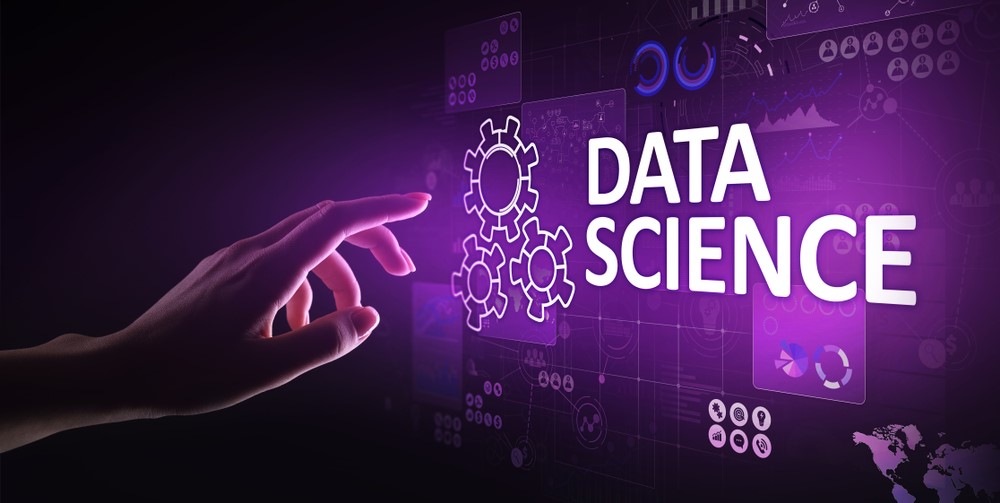
Data Science is the academic discipline that integrates domain expertise, programming abilities, and mathematics and statistics to extract valuable insights from data. It has gained popularity because it enables firms to process and interpret data efficiently. People can use this information to make informed company decisions, promote growth, optimise spending, and enhance performance.

What is Data Science?
Data Science is an amalgamation of data cleaning, analysis, and preparation. It uses several scientific methods to find patterns in raw data that might not be obvious initially. It also includes using prototypes, algorithms, predictive models, and custom analysis to solve business problems in multidimensional ways.
It finds application in various sectors such as banking, finance, transport, healthcare, E-commerce, pharmaceuticals and others.
Consequently, data analysis skills is much in demand, where data scientists do the process of analysing big data through an algorithmic or mechanical process to understand the correlations between each other and draw conclusions about the information they contain.

Skills associated with Data Science
These are the skills needed to excel as a Data Scientist:
- A sound foundation in financials – A strong background in finance forms the ideal foundation for success in machine learning, artificial intelligence and data science. Data scientists need to know the basics of supervised and unsupervised learning, the difference between regression and classification, and the difference between data engineering and business analytics.
- Proficiency in programming – Data scientists need to know how to use programming languages like Python, Perl, SQL, Java, and C/C++. They help the data scientists put the different kinds of unstructured data in order.
- Statistics – Having a basic understanding of descriptive statistics, including mean, mode, standard deviation, variance, probability distributions, CLT, sample and population, and inferential statistics, is essential.
- Data Visualisation – Data visualisation is the visual depiction of data and information. By employing visual elements such as charts, graphs, and maps, data visualisation tools facilitate identifying and comprehending trends, outliers, and patterns in data.
- Deep Learning – Deep learning is a subset of machine learning. A neural network with three or more layers is what deep learning is. These neural networks try to mimic how the human brain works, even though they aren’t very good at it. It lets them “learn” from large amounts of data. To do well in Deep Learning, you also need to know how to use Tensor Flow, Pytorch, and Keres.
- Big data – Big Data can help in data mining, leading to better decisions and strategic business moves. It cuts costs, saves time, plans new products, and makes intelligent decisions.
Data Science is on the rise and is a promising career for engineers to pursue.

OmDayal Group of Institutions: Maintaining Excellence in Education
The OmDayal Group of Institutions was founded in 2010 with the goal of training progressive architects and engineers. The college offers engineering and architecture courses affiliated with MAKAUT (Maulana Abul Kalam Azad University of Technology). It is accredited by NAAC, and the Architecture and Engineering courses are approved by AICTE and COA. Students benefit from a solid foundation, a conducive learning environment, and experienced professors. The Institute is also associated with the West Bengal State Council of Technical and Vocational Education and Skill Development and offers Vocational Diploma programmes. It also provides flexible on-the-job training in collaboration with the National Small Industries Corporation (NSIC), a Government of India Enterprise, in order to achieve better placements. OmDayal Group of Institutions, a leading college in West Bengal, thoroughly develops its students to be future professionals.
For more information, visit: https://omdayal.com.
Disclaimer:
OmDayal Group of Institutions blog posts has been written with the information gathered from approved articles and websites online. Our research and technical team strive to provide relevant information through such articles.
References:




